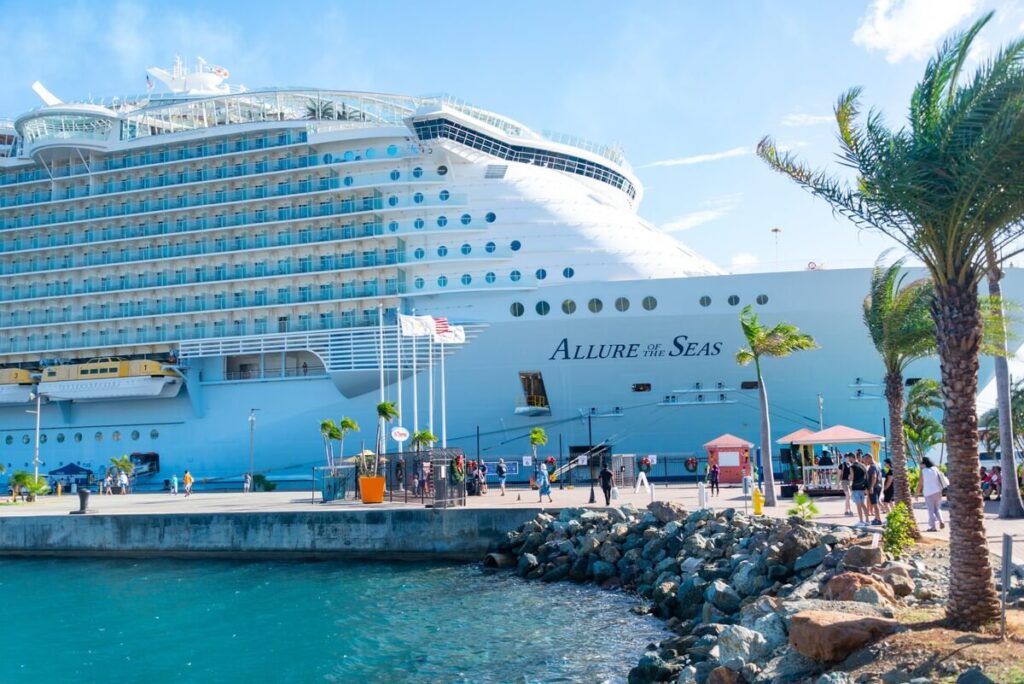
When many people think about working on a cruise ship, they likely envision beautiful sunsets and exploring exciting destinations on their days in port. That romanticized notion is captivating, especially for people who long to travel. However, working on a cruise ship is not all fun.
Behind the glamorous facade, the reality can be vastly different—especially when it comes to on-the-job injuries. Hiring a cruise terminal crew injury attorney is essential if you’ve suffered injuries working on a ship that docks at Cozumel Cruise Terminal.
Cruise ship jobs, especially at the busy Cozumel Cruise Terminal, come with their own challenges. Some hazards are inherent to any job, such as the risk of slip and falls. However, the unique maritime environment amplifies potential injuries on a cruise ship.
The constantly moving deck, exposure to elements, mechanical failures, or even something as routine as disembarking at the terminal can become perilous. Accidents might range from minor injuries to severe incidents that could change a crew member’s life forever.
Maritime law governs many of these unique situations, which differs considerably from those applicable to onshore jobs. Understanding these laws—especially when injured—is crucial. And that’s where the guidance from the experienced Cozumel cruise terminal crew injury lawyers at Johns Law Group, PLLC becomes important.
Our legal team’s primary goal is to help injured crew members understand their rights and obligations under these laws. One of the most important laws that applies is the Jones Act.
What Is the Jones Act?
The Jones Act, also called the Merchant Marine Act of 1920, is a federal statute designed to protect American workers at sea. It ensures crew members who sustain injuries or face illnesses due to negligence or an unseaworthy vessel can seek compensation.
Unlike traditional workers’ compensation laws that apply to land-based jobs, the Jones Act provides seamen with the right to sue their employers directly for damages.
However, the Jones Act has some critical differences. The first one is that the law only applies to U.S.-owned ships. Foreign-flagged ships do not register or operate under the laws of the U.S., so the Jones Act won’t apply.
The second notable difference under the Jones Act is the requirement to prove liability. A standard workers’ compensation claim is a no-fault claim. You should be entitled to benefits as long as you’re in the course and scope of your employment. That’s not the case with the Jones Act. Before you receive any benefits, you must prove the following:
- Your employer owed you a duty to provide a safe work environment,
- The cruise line breached that duty of care,
- The breach caused your accident, and
- You suffered damages, such as medical expenses.
Potential compensation can include medical expenses, lost wages, and pain and suffering.
Like other laws, you still have a statute of limitations that applies. That means you only have a limited time to file a lawsuit, such as three years from the accident date. However, the deadline might differ, such as in an occupational illness case.
Maintenance and Cure
Injured cruise ship workers might also qualify for something called maintenance and cure.
A worker who falls ill or sustains injuries while performing their job duties should receive maintenance payments while under medical care.
Maintenance is a daily allowance that covers the crewmember’s living expenses while they are being treated by a physician and unable to work.
Cure refers to your right to medical care and rehab services if necessary. Cruise lines should pay for your treatment until you reach your “maximum medical cure.”
Unlike regular workers’ compensation cases, you should be entitled to see a doctor of your choosing. Examples of things covered under “cure” benefits include medical equipment, prescriptions, and diagnostic tests.
What Should a Crew Member Do Following an Injury?
When you sustain an injury as a crew member, immediate action can significantly impact your well-being and any legal claims. Here are essential steps to follow:
- Seek medical attention. Even if your injury seems minor, get checked out by the ship’s medical team. The staff can provide immediate care and document your injuries.
- Report the injury. Inform your supervisor or the relevant department about the incident. Ensure they document your injuries in the ship’s logbook.
- Gather evidence. If possible, take photographs of the injury and the accident site. Collect names and contact details of any witnesses.
- Maintain records. Keep copies of medical reports, expenses incurred, and any communication related to the injury.
Before making any formal statements or accepting compensation, consult a Cozumel Cruise Terminal crew injury law firm that understands the intricacies of maritime laws like the Jones Act.
Contact a Cozumel Cruise Terminal Crew Injury Attorney
You must protect your rights while working as a cruise ship crew member. At Johns Law Group, PLLC, we are dedicated to representing injured crew members who’ve suffered injuries while working on a cruise ship.
Attorney Jeremiah Johns previously worked as an insurance defense lawyer. He understands how challenging it is for crew members working at busy cruise terminals like Cozumel to get the benefits they deserve.
Don’t give up your rights and forgo valuable compensation because you’re unsure how to proceed. Instead, please contact our office today to schedule a consultation and learn more about how we can help.